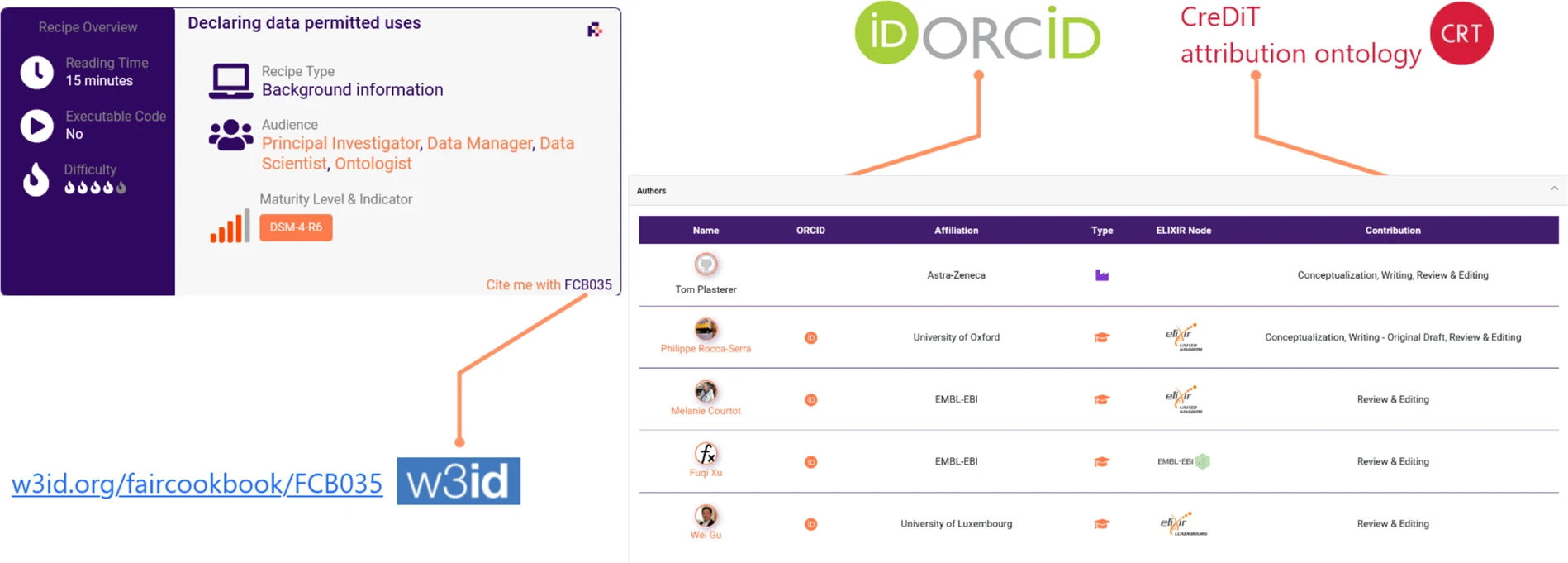Paper: The FAIR Cookbook - the essential resource for and by FAIR doers
I think that if you want to make your knowledge FAIR, you should use an open license and RDF. Simple. Now, not everything is knowledge. A lot of data is, but a lot more is not, think raw data. Using RDF to explain a protein sequence is still something that makes me feel uneasy.
However, first, you need to make RDF, you need to make assumptions explicit, you need to decide on meaning. Making RDF is not easy. It’s not hard, just a lot of administration and scientific thinking. What did I measure? What model do I use to describe the chemistry? You know, my research job.
Moreover, not only data should be FAIR. All research output (worth communicating) should be FAIR.
In the past, Andra Waagmeester invited me to co-author a recipe that explains the general steps of creating RDF. This was during the Open PHACTS project and with Carina Haupt. Writing recipes is something getting traction. They are a bit like vignettes from the R world.
In the past few years the FAIRplus project created a FAIR Cookbook with recipes and I wrote a few. Actually, I still have a few to finish, for which I cannot find the time. I retrospect, I spent too much time on perfecting the recipe to finish them earlier. The FAIR Cookbook is now a professional venue with editorial board. It is fully open source and welcomes your recipes. Oh, and it is now hosted as ELIXIR service, which is great to see!
Finally, the The FAIR Cookbook - the essential resource for and by FAIR doers paper is out. Go read it :)
